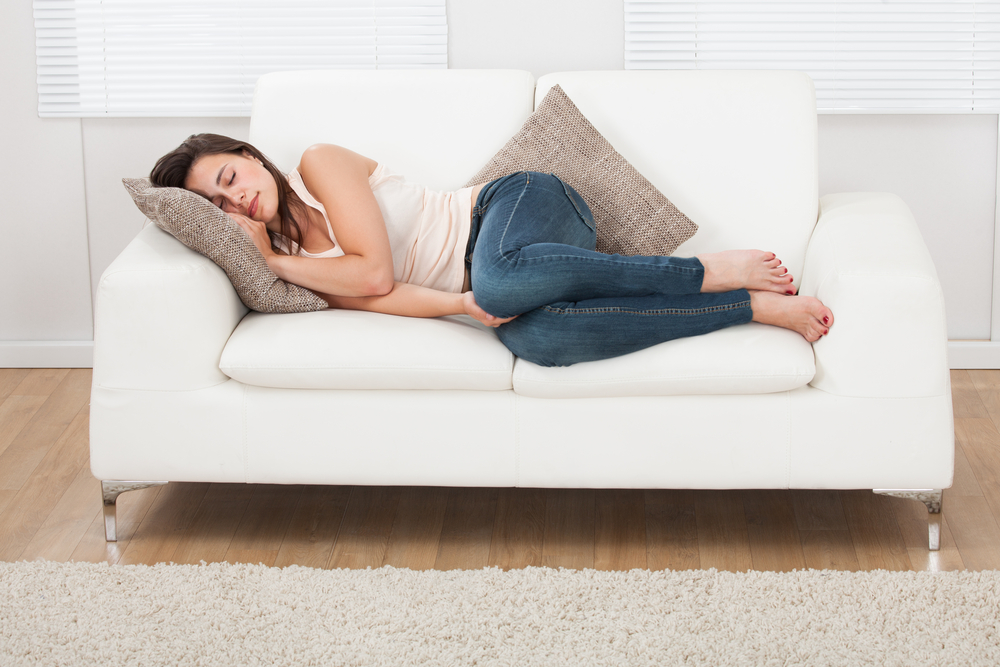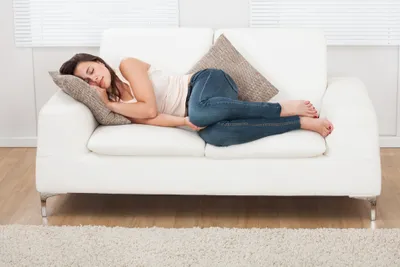Most of us dream of having a quick nap at our desk during our workday, however the boss usually frowns on that kind of thing during production hours. In fact, the National Sleep Foundation says that being awake all day and then sleeping overnight may not even be our natural sleep pattern, as it doesn’t fit with sleeping patterns of most other mammals.
While naps are more commonplace among toddlers and the elderly, they may have benefits to working adults as well. The foundation says the country as a whole is becoming more sleep deprived, and that a half hour nap (on your lunch break?) can help boost alertness. Let’s look at six good and bad beliefs on napping during the day…
1. Naps Reduce Mistakes
When we get very tired, we tend to make careless mistakes, whether we’re driving, putting together a car, or writing. However, the foundation notes that NASA did a study on “sleepy military pilots” and astronauts that determined a 40-minute nap increased job performance by 34-percent and alertness by a whopping 100-percent.
The foundation also says that getting in a bit of shuteye prior to a longer drive can help prevent accidents. The same source recommends that if you’re already on the road and feeling drowsy, you should pull over to a rest area as soon as possible. Drinking caffeine and getting 20-minutes of rest while pulled over can also help.
2. Naps can Mess with Nighttime Sleep
The Mayo Clinic points out that “napping isn’t for everyone” and that for some people, they can do more harm than good. If you engage in a nap at your desk or in your own bed during the day, it can cause insomnia (sleeplessness) or lower the quality of sleep overnight, making you feel groggier in the morning.
The clinic says controlling the frequency and length of your naps can help combat these negative side effects. That means naps that are 10 to 30-minutes in length, while napping between 2 and 3 p.m. when you get the post-lunch slowdown, suggests the clinic.
3. Naps can Improve Memory
LiveScience says that taking an afternoon nap can be beneficial to your memory – in particular for younger adults. An article from 2014 explains that a study showed young adults were able to remember more words they learned during a pre-nap memory test than older adults.
The study focused on adults aged 18 to 30, with another group aged 60 to 80. The interesting finding was that the older group remembered just as much from the test whether they napped or not, according to LiveScience.
4. Resting Lowers Blood Pressure
LiveScience also said that while napping may not improve the memory of seniors, it markedly reduces high blood pressure that has been linked to increased dementia risk. So while there are no apparent immediate benefits of napping for older adults, they could be helping their future brains.
The Telegraph newspaper in the U.K. adds to this thought in a 2015 article that says a nap a day could literally save your life. Research involving middle-aged men and women who took a regular nap around noon had measurably lower blood pressure than those who are awake all day. This lowered blood pressure means less chance of heart attacks, added the article.
5. Resting May Jeopardize Respiratory Functions
Meanwhile, the Daily Mail Online (also based in the U.K.) claims that an afternoon nap for adults can raise risk of dying earlier by a third. The same findings showed that the chances of dying from breathing problems such as bronchitis, emphysema and pneumonia is increased by 2.5-times, added the article.
The belief, according to researchers on the study, is that napping increases inflammation in the body. However, the article also notes that napping may be an early marker that health problems may already exist. The good news is that the article acknowledges the other research that says naps cut risk of heart failure.
6. Daytime Dozing Linked to Diabetes
The Wall Street Journal said in a 2015 article there’s a link between diabetes and long naps in adults—but it’s not clear if diabetes causes the naps, or if naps cause higher risk of diabetes, explains the article.
University of Tokyo researchers looked at data from 10 studies and found that those who often felt the urge to sleep during the day had a 56-percent higher risk of diabetes than those who stayed awake. Those who regularly took naps for an hour or more had a 46-percent chance of developing diabetes, the research also found. The article suggests having your sleepiness assessed by a doctor.









